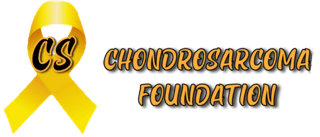Clinical Research Study by Jonathan Trent on Effectiveness of IDH Inhibitors in Chondrosarcoma
The Biology and Management of Cartilaginous Tumors: A Role For Targeting Isocitrate Dehydrogenase
Gabriel Tinoco, MD, Breelyn A. Wilky, MD, Ana Paz-Mejia, MS, Andrew Rosenberg, MD, Jonathan C. Trent, MD, PhD
Jonathan Trent, M.D., Ph.D. is a world renown leader of the Sarcoma, Associate Director, Clinical Research, University of Miami, Sylvester Comprehensive Cancer Center, he currently runs a research lab and is conducting clinical trails on Chondrosarcoma.
From the Sylvester Comprehensive Cancer Center, Department of Medicine, University of Miami Miller School of Medicine, Miami, FL; Sylvester Comprehensive Cancer Center, Department of Pathology, University of Miami Miller School of Medicine, Miami, FL.
Chondrosarcomas are rare mesenchymal neoplasms defined by the production of abnormal cartilaginous matrix. Conventional chondrosarcoma is the most common histology. The management of primary conventional chondrosarcoma generally is surgical with the possible addition of radiation therapy. Treatment of conventional chondrosarcoma is problematic in unresectable or metastatic disease because the tumors tend to be resistant to standard sarcoma chemotherapy regimens. Previous attempts at targeted therapy, including inhibitors of Hedgehog signaling, the mTOR pathway, and platelet-derived growth factor receptor (PDGFR) have been largely disappointing. However, heterozygous mutations in isocitrate dehydrogenase (IDH) enzymes recently have been identified in chondrogenic neoplasms, with mutations reported in approximately 87% of benign enchondromas, 70% of conventional chondrosarcomas, and 54% of dedifferentiated chondrosarcomas. The normal IDH protein continues to produce alpha-ketoglutarate (alpha-KG) whereas the mutant IDH protein converts KG to the oncometabolite 2-hydroxyglutarate (2-HG). Clinical trials of novel IDH inhibitors are ongoing, with evidence of early activity in IDH-mutant leukemias. IDH inhibitors show antitumor effects against IDH-mutant chondrosarcoma cell lines, supporting the inclusion of patients with chondrosarcoma with IDH mutations on IDH inhibitor clinical trials for solid tumors. Targeting IDH mutations may offer hope of a novel antineoplastic strategy not only for patients with chondrosarcomas, but also for other solid tumors with aberrant IDH activity.
KEY POINTS
Treatment recommendations for chondrosarcoma depend heavily on histologic subtype, which predicts sensitivity to chemotherapy and radiation.
RECIST response rates to anthracycline-containing chemotherapy regimens are less than 20% for the most common conventional and dedifferentiated subtypes.
Isocitrate dehydrogenase (IDH) enzymes normally catalyze conversion of isocitrate into alpha-ketoglutarate during the citric acid cycle, a function impaired in mutant enzymes.
Mutated IDH enzymes also possess a unique gain-of-function phenotype that converts alpha-ketoglutarate to an oncometabolite, 2-hydroxyglutarate, not present in normal cells.
IDH mutations have been identified in numerous solid and hematologic cancers, including chondrosarcomas, which have led to ongoing clinical trials of novel IDH1 and IDH2 inhibitors.
For the full article:
